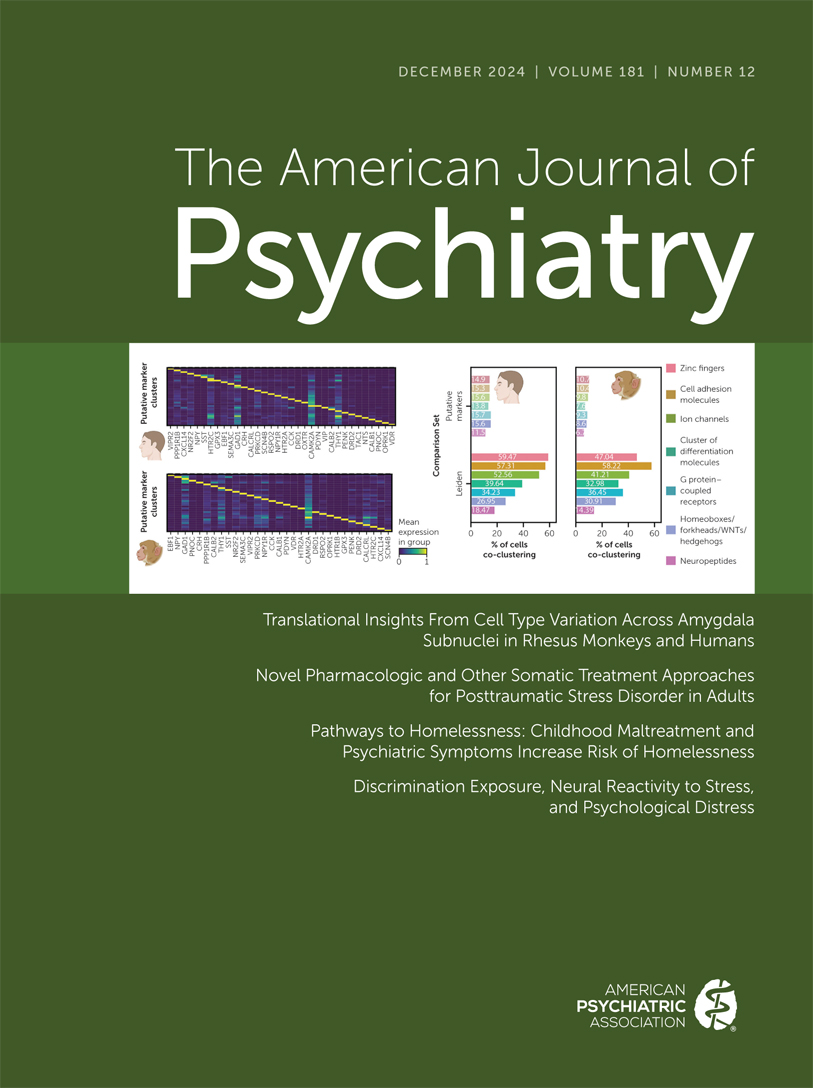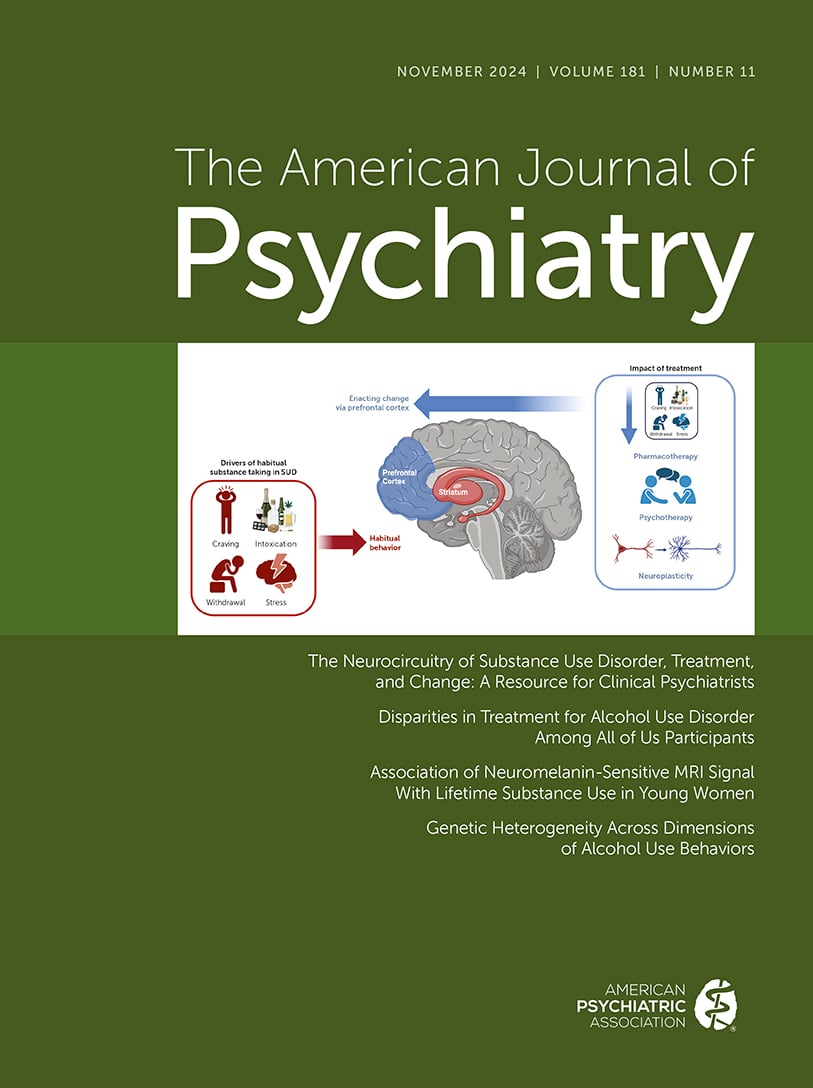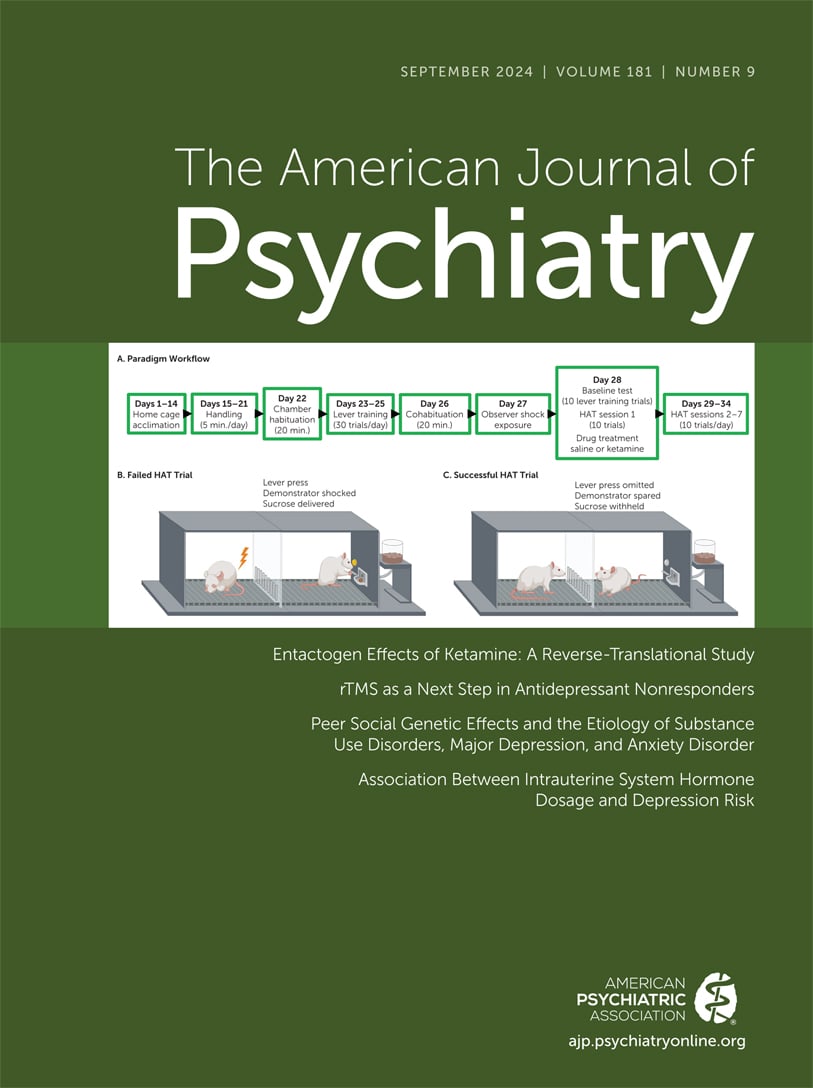American Journal of Psychiatry
- Volume 171
- Number 8
- August 2014
In This Issue
Perspectives
Editorials
Communications and Updates
Editorials
Perspectives
Commentary
Perspectives
Clinical Case Conference
Perspectives
Perspectives in Global Mental Health
Perspectives
Images in Psychiatry
Perspectives
Reviews and Overviews
Publication date: 01 August 2014
Pages829–843Neuroimaging findings support conceptualizing bipolar disorder as a result of neural circuitry abnormalities in emotion and reward processing and regulation. Future studies should adopt these four strategies to improve the prediction of future illness ...
https://doi.org/10.1176/appi.ajp.2014.13081008New Research
Articles
Publication date: 01 August 2014
Pages844–853Marines who had first received Mindfulness-Based Mind Fitness Training, which can affect brain structures integral to the body’s response to stress, experienced quicker heart rate and breathing rate recovery, improved sleep quality, and lower levels of ...
https://doi.org/10.1176/appi.ajp.2014.13040502Publication date: 01 August 2014
Pages854–863Objective Childhood maltreatment acts as a severe stressor that produces a cascade of physiological and neurobiological changes that lead to enduring alterations in brain structure. However, structural neuroimaging findings have been inconsistent. The ...
https://doi.org/10.1176/appi.ajp.2014.13101427Publication date: 01 August 2014
Pages864–871Unexpected death of a loved one was associated with heightened vulnerability for virtually all commonly occurring psychiatric disorders, including depression, PTSD, manic episodes, phobias, panic disorder, and substance use disorders in one of the first ...
https://doi.org/10.1176/appi.ajp.2014.13081132Publication date: 01 August 2014
Pages872–880Important differences in the expression and effect of maternal and paternal PTSD were found when examining parental PTSD in the offspring of Holocaust survivors and methylation of the glucocorticoid receptor gene exon 1F.
https://doi.org/10.1176/appi.ajp.2014.13121571Publication date: 01 August 2014
Pages881–888Objective Basic studies have demonstrated that optimal levels of prefrontal cortical dopamine are critical to various executive functions such as working memory, attention, inhibitory control, and risk/reward decisions, all of which are impaired in ...
https://doi.org/10.1176/appi.ajp.2014.13121581Communications and Updates
Letters to the Editor
Communications and Updates
Books Received
Past Issues
View Issues Archive
Vol. 181 | No. 12

Vol. 181 | No. 11

Vol. 181 | No. 10
